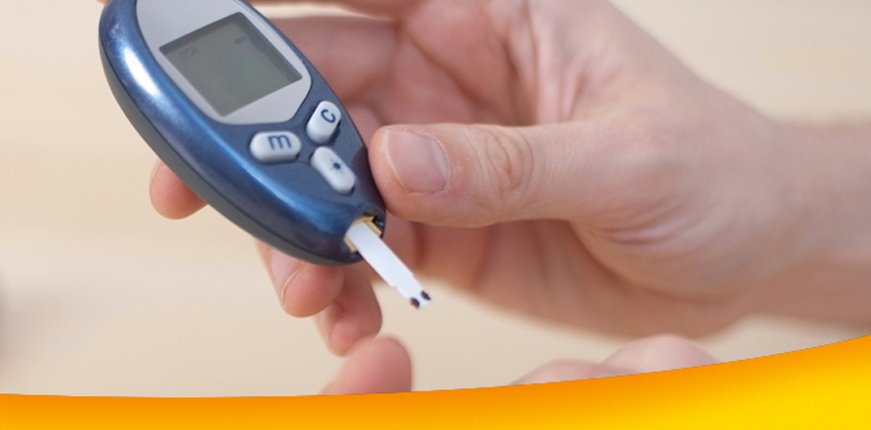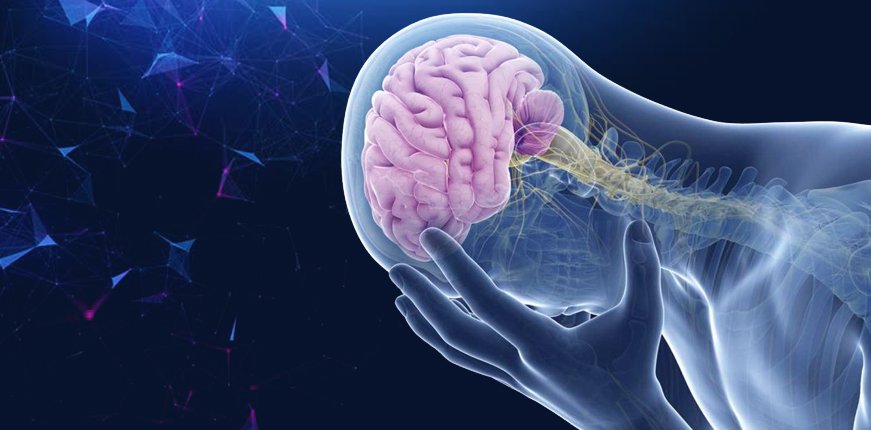
Diabetes Doctors: What Does a Diabetologist Do?
Diabetology Treatment in Indore
Diabetology is the clinical science of DM, its identification, treatment and follow-up. It is thought-about a specialized field of medicine. The term Diabetologist in Indore is employed in many ways. Diabetology isn't a recognized medicine and has no formal coaching programs resulting in board certification. In alternative contexts, the term Diabetologist refers to Dr. Abhyudaya Verma as a well known Endocrinologist and Diabetologist in providing the best Diabetes treatment in Indore. He follows the analysis efforts area unit focused in the main Polygenic disease care, aside from regulation medication dose and temporal order. Dr. Abhyudaya Verma is a reputed Diabetologist who has concern with the potential consequences of the polygenic disease, e.g. Retinopathy, Renal disorder and Peripheral Pathology.
Who is Diabetologist?
A Diabetologist is a Doctor who specializes in the treatment of Diabetes.
What medical conditions do Diabetologist treat?
- Diabetes Type I
- Diabetes Type II
- Complications of diabetes
- Treatment for diabetes
- Treatment of diabetes usually involves a multidisciplinary team.
The Diabetologist is an expert in the treatment of Diabetes generally coordinates between the Diabetic Educators, Nurses, Podiatrists, Ophthalmologists and Renal physicians to educate, treat and monitor a patient. Treatment usually involves medications either orally or through Insulin injections.
What do you expect at your first visit with a Diabetologist?
History
The Diabetologist will ask about your diabetes problems in detail about:
- Current symptoms
- Duration of illness
- Complications of diabetes
- Level of control you have had on Other illnesses, Medications, Allergies, Social history, Examination
Your Diabetologist will conduct a general examination and will particularly focus on searching for complications related to your Diabetes. These generally involve the Cardiovascular system (Heart and Blood vessels), the eyes (Retinal vessels), Kidneys and Nerves.
Difference between Diabetologist and Endocrinologist
Diabetes is that popularly well-known malady among the Patients. Numerous different serious health issues which may have an effect on Diabetic patients square measure fleshiness, Heart diseases and even Stroke. Thus it's terribly essential to consult a Doctor especially Diabetologist within the early stage of the Polygenic disease. The patients will approach either Diabetologist or Specialist for the treatment. Diabetologists generally consults the Physicians who treat solely Diabetic patients. However, Endocrinologists also consults with the Physicians who specialized in a Medical Specialty and treat the malady that has an effect on the Endocrine organs. As the polygenic disease is one in all the medical specialty issues, Dr. Abhyudaya Verma, Endocrinologist will provide thorough special treatment for Diabetic patients.
Diabetologist and Opportunities
Diabetologists consultation in hospitals is to treat the patients who come back to the hospitals with numerous Diabetic issues. They'll refer either Private or Government Hospitals in line with their interest and work expertise. Numerous Health Care Centers additionally rent the service of Diabetologists. Those have enough work expertise as Diabetologist will work severally as Consultants.
Endocrinologist and Opportunities
Endocrinologists will refer various hospitals that have the facilities to treat variety of medical specialty issues. Sometimes, private hospitals provide a lot of regular payment to Endocrinologists than Government Hospitals. Thus it's higher to affix Private Hospitals if the Endocrinologist's thinks in a moneymaking career. They'll additionally add numerous Health Care Centers and provides treatment for various medical specialty issues. They'll perform the role of personal Consultants if they need sensible work expertise as a Specialist. They'll additionally pursue their career in analysis field also in new treatment ways.
The key distinction between Diabetologist and Endocrinologist
Diabetologists treat solely Diabetic patients whereas Endocrinologists provide treatment for the patients having medical specialty issues.
To become a Diabetologist one must have M.D degree generally medication. However, Endocrinologists must have a D.M degree in Endocrinology. The methodology of treatment square measure is totally different. Diabetologists will provide treatment for the patients who are in early or higher stages of the polygenic disease. However, Endocrinologists don't recommend any elaborated treatment set up for Diabetic patients as they treat them as the Patients treating only for Medical specialty issues.

Finding the Best Doctors for Thyroid Care
Finding the Best Doctors for Thyroid Care, Hormonal disorder, Obesity, Gynecology is No More Problem in Indore: What a Relief!
Searching for the solution in finding a Doctor for your thyroid sickness care are confusing as Physicians from a large variety of medical specialties - from family Physicians to Endocrinologists - treat thyroid problems.
As you have Thyroid and want to diagnosis or are living with the condition, there are several factors to contemplate in choosing Dr. Abhyudaya Verma Thyroid Specialist Doctor in Indore together with the sort of Thyroid condition you have got, your coverage and private preferences.
Types of Thyroid Doctors in Indore
There are two types of Doctors World Health Organization might concentrate on any space of medicine—Medical Doctors (MDs) and Osteopathic Doctors (DOs). Osteopathic Doctors endure coaching terribly almost like that of Medical Doctors and also the two or thought-about equal with reference to the flexibility to worry for and treat patients. Some might concentrate on Endocrine conditions, like thyroid malady whereas others might look after patients with these considerations. With some thyroid conditions, your GP is also your best option for your care, where you'll be compelled to see an associate Medical Specialist or an operating surgeon World Health Organization makes a speciality of treating Thyroid Cancer in Indore by Dr. Abhyudaya Verma Thyroid Specialist Doctor.
Medical Doctors and Osteopathic Doctors who may treat Thyroid disease include :
Primary Care Doctors
Primary Medical Care Doctor includes family practice and medical speciality both. Doctors disagree within the scope of their application so several Medical Care Doctors in Indore are comfortable treating reaction Glandular disease (Hashimoto's Thyroiditis).
Among Primary medical care doctors, some are additional fascinated by treating secretion imbalances and have a passion for treating folks with Thyroid Disorder. These Physicians make to apply "holistic" or "integrative" for explaining associate degree approach to a disorder that has total well-being, instead of numbers on blood tests alone.
Obstetrician/Gynecologists in Indore
OB/GYN Doctors take care of women who are usually the primary to sight Thyroid disease. Several manage Thyroid conditions like Thyroid disease and women hormonal disorders are closely interconnected. Dr. Abhyudaya Verma Thyroid Specialist / Endocrinologist & Dr. Deepika Verma renowned Consultant Gynecologist and Obstetrician in Indore.
Endocrinologists in Indore
Endocrinologists are Specialized Doctors. Like Dr. Abhyudaya Verma Thyroid Specialist / Endocrinologist in Indore World Health Organization focus observations on the system (such because of the thyroid). Endocrinologists first undergo a residency in a medical speciality (so they're aware of primary care) followed by a fellowship in the medical speciality.
Endocrinology is the field most closely aligned with thyroid disease and Endocrinologists differ in the scope of their practice and focus more on thyroid disease while others focus more on conditions such as Diabetes, Infertility or Obesity in Indore.
Oncologists
Oncologists specialize in the treatment of Cancer with medicines and will be required by individuals with thyroid cancer that's not managed with surgery alone (such as Dysplasia Thyroid Cancer).
Surgeons in Indore
Thyroidectomy (partial or total removal of the Thyroid gland) is all about that when a Specialist Surgeon is required. Different types of Surgeons could specialize in Thyroid surgery in Indore, as well as General Surgeons Ear, Nose and Throat doctors (ENT), Head & Neck Specialist Surgeons, Endocrine Surgeons, Medical Specialty Surgeons and more.

Diabetes and Exercise
Diabetes has increased substantially, particularly in India. The pandemic is expected to reach even greater proportions in the future. Genetic and environment factors are of equal importance in causing diabetes. While, genetic factors are beyond our control, lifestyle modifications, complemented by pharmacological interventions can help in modifying the environmental factors. It is well recognised that modernisation and industrialisation have resulted in drastic changes in lifestyle, unhealthy diet habits and physical inactivity.
It is known that physical activity is important for everyone’s health and it can be especially important if one has diabetes. The therapeutic use of exercise for diabetes was prescribed during the course of a period, which dates back to as early as 600 BC. Today, exercise is recognized as an essential part in the Management of Diabetes. Exercise, if done regularly, it will help people with diabetes to live a healthy life despite of any disorder. However, as it is totally patient dependent as it is often the most neglected aspect of management of diabetes.
Role of physical activity
Regular physical activity is very essential and an important part of effective weight maintenance as it improves overall health. It is the most cost-effective medicine. It does not matter what type of physical activity one performs – sports, planned exercise, household chores, garden work or work-related tasks, all the things are beneficial. Today in the technological advancement system led to a sedentary lifestyle compared to earlier days when a fair amount of physical activity was involved. Walking and cycling have been reduced as people move around in cars and buses. Microwave ovens and mixers have replaced manual cooking and grinding. People are addicted to television and internet and rather than socializing, they now ‘meet’ neighbor over calls or text in Mobiles. Hence, one should make it a daily challenge to find ways to move one’s body. One can think of ‘move’ in small increments of time. It doesn’t have to be an hour in the gym or a 45-minute aerobic class.
Benefits of physical activity
The benefits of exercise are far sighted. Clinical and epidemiological studies have demonstrated that regular exercise helps prevent and controls diabetes mellitus, reduces the risk of death due to heart disease and stroke, aids in reducing weight, reduces colon cancer, strengthens bones, muscles and joints, enhances immune system, increases stamina, lowers blood pressure, aids digestion, reduces serum lipid levels, improves blood circulation, provides skin a healthy glow and may add a few years to life.
Some of these benefits include:1) Lowering blood sugar, blood pressure and blood fats 2) Increasing oxygen levels in the body 3) Aiding weight loss 4) Reducing stress 5) Strengthening the heart, muscles and bones 6) Improving blood circulation 7) Toning muscles.
NO MORE EXCUSES; JUST DO IT!
There are hundreds of excuses not to exercise. Too busy, too tired, too bored, no room for equipment, no place to exercise, can’t afford club fees, bad health; the list is endless. Excuses provide an easy way out to avoid exercising. The faster you work towards eliminating those excuses, the closer you’ll be to living a healthier, more active life. Eventually, exercise won’t be a chore – it will be the reward your body’s been craving.
If time is your enemy, re-evaluate your schedule
Instead of spending 30 minutes sitting in front of the television at night, do on the spot jogging or walk on your treadmill as you watch your favorite show. Remember you don’t have to exercise all at once. Break your workout into two 15-minute sessions or three 10-minute sessions and do them throughout the day.
If you’re too tired (or lazy) to exercise, get moving
Fatigue can actually be caused by a sedentary lifestyle. Exercise will help jump-start your body. Start slowly, and over time, exercise will increase your energy level while decreasing fatigue. One can tailor the exercise programme to one’s life style.
No place to exercise? Find one
You don’t need a park, a playground or beachside to do exercise. One can select activities which can be done at sites convenient for you which can be an outdoor or indoor activity. These may be around the house or on the terrace or even in a small room where spot jogging can be done. It is not the place that matters, but the consistency with which you do it.
Aches and pains? Reprogram your thinking
Initially when starting an exercise programme, there might be some pain which is due to accumulation of lactic acid in the muscles. In due course, the pain will disappear as one follows a proper exercise regime. However, if any exercise hurts too much you should stop and consult your doctor.
Exercise checklist for people with diabetes
1) Talk to your doctor about the right exercise for you. 2) Check your blood sugar level before and after exercising. 3) Check your feet for blisters or sores before and after exercising. 4) Wear the proper shoes and socks. 5) Drink plenty of fluids before, during and after exercising. 6) Warm up before exercising and cool down afterward. 7) Have a snack handy in case your blood sugar level drops.

Diabetes and brain damage it’s like wireless connection!
Looking through the dangers of Type 2 diabetes, Doctor ensures life-threatening condition like heart disease, typical risk of stroke along with micro vascular complications such as Retinopathy, Nephropathy and Neuropathy. However diabetes can damage the brain directly—filling in the details of the gap in which insulin resistance and memory loss takes the prime criteria. While the deleterious effects of diabetes mellitus on the retinal, renal, cardiovascular and peripheral nervous systems are widely accepted though a less attention has been given to the effect of diabetes on cognitive function. Both Type 1 and Type 2 diabetes mellitus have been associated with reduced performance on numerous domains of cognitive function.
Life expectancy is increasing is a good news. The downside to this trend is that more and more people will develop diseases such as diabetes and some may even be unfortunate to be in a state of ‘buy one – get one’ fate. In fact, epidemiologic studies have shown having Type-2 diabetes increases the risk of developing Diabetes disease by 65% and that 80% of Diabetic patients have problems of glycemic control.
Meals, insulin and brain functions look alike within minutes of a meal, insulin is sent to the brain to help neurons absorb and use glucose. Smaller increases in insulin also occur throughout the day, likely in response to neural signals. In the brain, insulin has a number of roles to play. It promotes glucose uptake in the neurons of the hippocampal formation and the frontal lobes, areas that are involved in memory. Insulin also strengthens the synaptic connections between brain cells, helping to form new memories. In addition, insulin regulates the neurotransmitter acetylcholine, which plays an important role in learning and memory. Finally, insulin is involved in blood vessel formation and function.
Brain insulin resistance means when insulin and related growth proteins in the brain are vital for cell survival and both glucose and insulin appear to regulate many brain functions, including learning and memory. Dysfunction of these chemicals contributes to cognitive deficits. Chronic episodes of high or low levels of blood glucose may directly affect insulin’s actions in the brain or damage brain cells leads to cognitive impairments. New evidence shows that the insulin-insensitive state found in our liver, fat and muscle cells/tissues corresponds with insulin sensitivity in our central nervous system, as well (insulin resistance at the level of brain). This impacts the areas of the brain responsible for cognition, memory and learning. Diabetes may be wreaking havoc especially in the hippocampus. The hypothalamus means in the brain region that regulates metabolic processes and activities like hunger, thirst, and body temperature; also appears to be involved especially areas that respond to low blood sugar and regulate energy balance, body weight and the sensitivity of the liver and muscles to insulin. Insulin is a process of memory formation at the cell level; it also regulates several of the chemical messengers involved in memory, such as acetylcholine. At low doses, insulin helps to contain inflammation and, at high doses, stimulates it. Increased insulin concentrations also appear to boost levels of beta-amyloid which is known as a protein involved in the formation of senile plaques that can lead to diabetic disease. Because inflammation, reduced acetylcholine and toxic accumulations of beta-amyloid protein are hallmarks of the disease, insulin insensitivity is one route through which this disease may develop.
Those suffering from Type 2 diabetes and insulin resistance also run a heavy risk of developing impaired memory cognition and increased risk for dementia or memory loss and developing diabetec disease. Insulin regulates the brain’s supply of dopamine which is a neurotransmitter which helps in attention, reward and motor activity and any disruption or abnormality in insulin’s action can lead to brain disorders and cognitive imbalances in mood and disorders like depression.
Two-way scientific and treatment benefits: There is mounting evidence that scientists from the metabolic and central nervous system (CNS) fields must unite and look at neurodegenerative processes from a different angle, taking into account the evidence generated whilst studying metabolic diseases. Conversely, knowledge generated in CNS labs could contribute to innovative ways to prevent and treat metabolic diseases. Here are some questions that scientific brains and hands together address: a) How can metabolic states affect brain function? b) How can CNS targets expressed in the periphery regulate metabolism? c) How can anti-diabetic compounds contribute to preventing and treating neurodegenerative diseases?
An ‘executive’ could lose executive function: Since diabetes impairs planning, coordinating, sequencing, and monitoring of cognitive operations, collectively known as ‘executive function’, the so-called ‘business executive’ being a diabetic could end up with loss of executive function. Therefore, it’s important to prevent cognitive decline. Evidence from neuro-cognitive testing suggests that cognitive dysfunction should be listed as one of the many complications of diabetes. Recently, it is also emphasized that clinicians should consider cognitive function in assessing and guiding their patients regarding safe diabetes self-management regardless of their glycemic targets. If someone asks what’s special about Dr. Abhyudaya Verma Diabetes Speciality Centre – the answer is this – holistic treatment beyond just glucose control – where the doctor treats physical, metabolic, mental, psychosocial and behavioral aspects of the patient.
The same slogan: ‘prevent and control diabetes with appropriate lifestyle modification and live a healthy life’, the same wine (message) in a new bottle (evidence). The ‘voice’ should now reach beyond ears – right up to the brain for better cognitive function and best quality of life.
